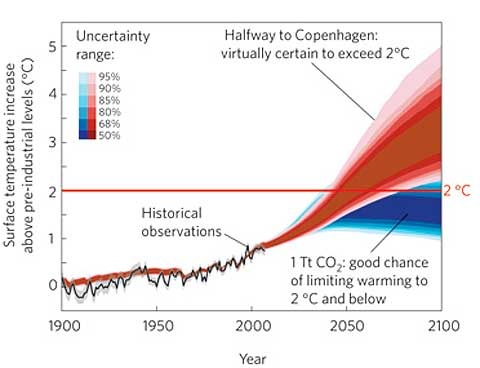 I’ve been reading the admirably lucid report of the Australian Climate Commission which Gareth highlighted recently, and reflecting on its restrained exposition of the current state of the science. One couldn’t ask for a clearer or more accessible statement within its 70 page range.
I’ve been reading the admirably lucid report of the Australian Climate Commission which Gareth highlighted recently, and reflecting on its restrained exposition of the current state of the science. One couldn’t ask for a clearer or more accessible statement within its 70 page range.
At the same time I’ve started reading a book by philosopher Stephen Gardiner (pictured). It’s titled A Perfect Moral Storm: The Ethical Tragedy of Climate Change and I’ll be reviewing it in due course. Why I mention it here is because the first proposition he sets out in his preface accorded with what was floating around in my mind as I read the Commission’s report. He notes that we are currently accelerating hard into the most serious environmental problem humanity has ever faced. Yet, after twenty years of awareness we are neither slowing down nor stabilizing, let alone reducing our output to the problem. Rather we are continuing to add more fuel to the fire, ever faster. “This, arguably, is the most striking fact of our time.”

 Before he left New Zealand, Jim Hansen wrote an open letter to prime minister John Key on behalf of the youth of New Zealand, and specifically 350.org. It’s well worth reading in full, because it encapsulates the case for taking action here, and now. I would be most interested in seeing a meaningful response from Key, but — as they say — I’m not holding my breath. Here’s the letter:
Before he left New Zealand, Jim Hansen wrote an open letter to prime minister John Key on behalf of the youth of New Zealand, and specifically 350.org. It’s well worth reading in full, because it encapsulates the case for taking action here, and now. I would be most interested in seeing a meaningful response from Key, but — as they say — I’m not holding my breath. Here’s the letter: This, from Don Nicolson, president of Federated Farmers, appropriately titled
This, from Don Nicolson, president of Federated Farmers, appropriately titled 
